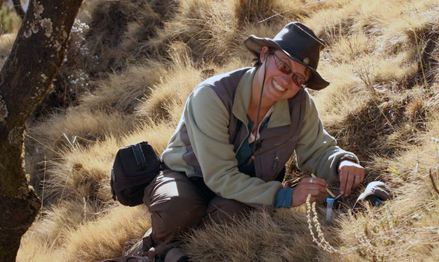Latest News Archive
Please select Category, Year, and then Month to display items
12 October 2020
|
Story Dr Cindé Greyling
|
Photo Supplied
 Exercise and nutrition can work wonders for your mental health – you don’t even have to ‘feel like’ or ‘enjoy’ moving around and eating well for it to work – it does its thing anyway.
Exercise and nutrition can work wonders for your mental health – you don’t even have to ‘feel like’ or ‘enjoy’ moving around and eating well for it to work – it does its thing anyway.
Nowadays, people talk about mental health like it is the common cold – which is good! But do you know what it really means? Being mentally healthy does not only refer to the absence of a mental illness but includes your emotional and social well-being. One would almost want to add physical well-being too, since a healthy body does indeed support a healthy mind. However, since so many people consider themselves ‘mental health experts’, some myths have been sold as truths.
Myth #1 – You are doomed.
Nope. Never. You are never doomed. There is always help. Mental-health therapies range from self-help, talk therapy, medication, to hospitalisation in some cases. Somewhere on this spectrum of treatments, there will be something that works for you. But you must be willing to get the help and do the work. For starters, exercise and nutrition can work wonders – you do not even have to ‘feel like’ or ‘enjoy’ moving around and eating well for it to work – it does its thing anyway.
Myth #2 – It won’t affect you.
It may. Research suggests that one in five people may suffer from a mental illness at some point in their lives. Being well now does not mean that it will stay that way. Biological and environmental factors both impact your mental health. Hopefully not, but at some point, you may experience an event that affects your mental health.
To remain integrated in a community is always beneficial
for anyone suffering from a mental or physical condition.
Myth #3 – Someone struggling with mental health must be left alone.
Hardly! To remain integrated in a community is always beneficial for anyone suffering from a mental or physical condition. You do not need to fix them, but to remain a friend. Continue to invite them, even if they decline. Do not judge, and do not try to understand. Just stay around.
Go and be kind to yourself, and to those around you.
Vice-Chancellor’s Award for Excellence in Teaching goes to trailblazer Dr Aliza le Roux
2013-11-15
|
 |
Dr Aliza le Roux
Photo: Supplied
15 November 2013 |
Dr Aliza le Roux, Subject Head in the Department of Zoology and Entomology at the UFS Qwaqwa Campus, is this year’s winner of the Vice-Chancellor’s Award for Excellence in Teaching.
It came as no surprise. Dr le Roux has already been piling up numerous awards as a result of her outstanding work as an academic who is also an NRF-rated researcher.
In 2012, she joined the Teaching and Learning Champions group, which inspired her to take a more scholarly, research-focused approach to her teaching. Dr Le Roux has had huge successes in her teaching at the Qwaqwa Campus, propelling student pass rates from less than 50% to more than 90% in one course. As part of her approach, she makes use of interventions such as pre-class quizzes on Blackboard.
She is also doing Action Research on the teaching method known as ‘flipping’ the classroom, a process that essentially reversed traditional teaching practice. Dr le Roux is also looking into the impact of introducing Zotero (a free user-friendly online tool for research purposes) on the Qwaqwa Campus.
Her primary research outside of the classroom focuses on the evolution of wild mammals’ cognitive abilities. Dr le Roux and her students are starting fieldwork in November this year, investigating how paternal care impacts bat-eared foxes’ physical and cognitive development.